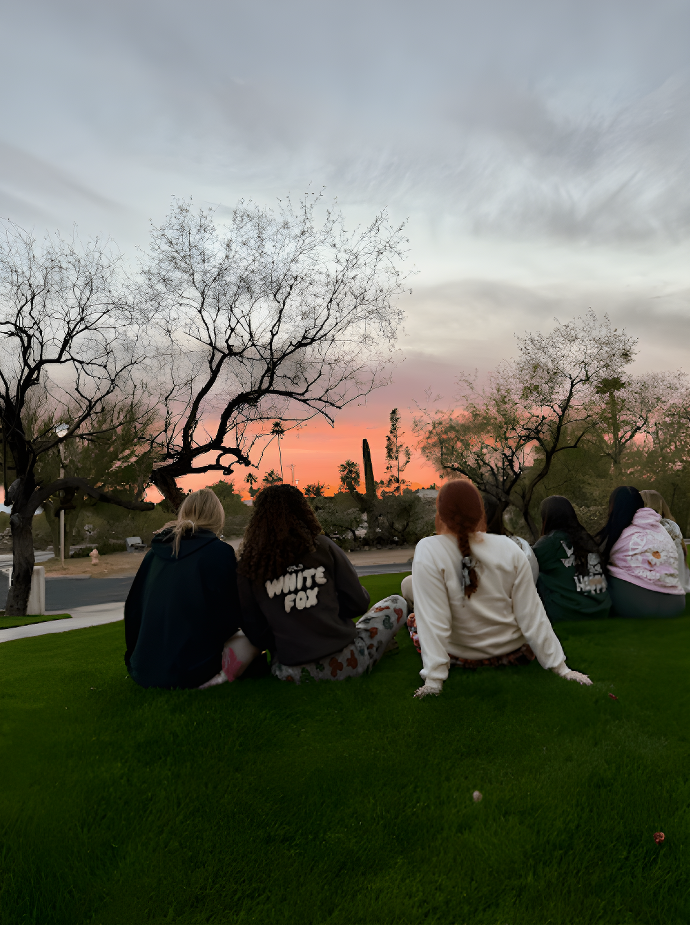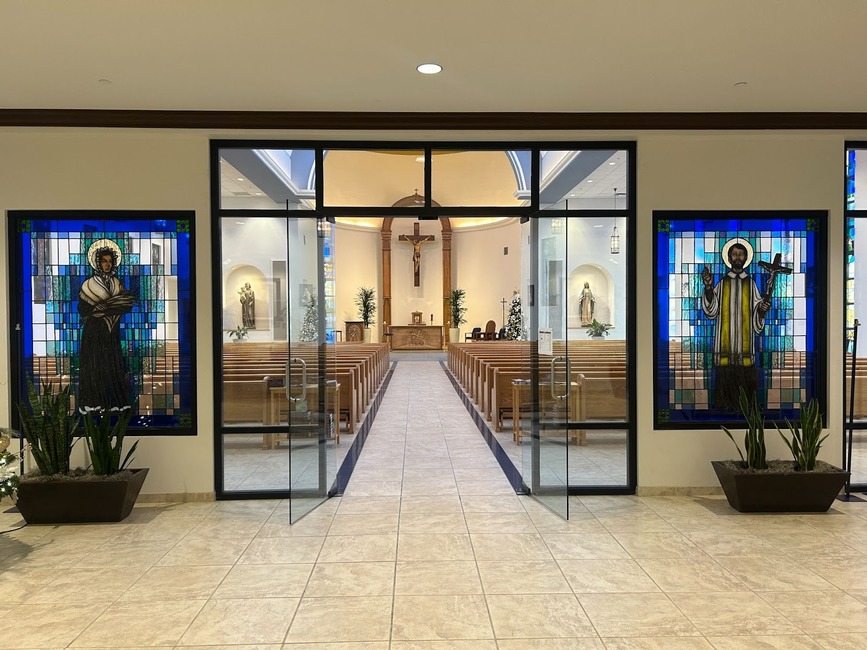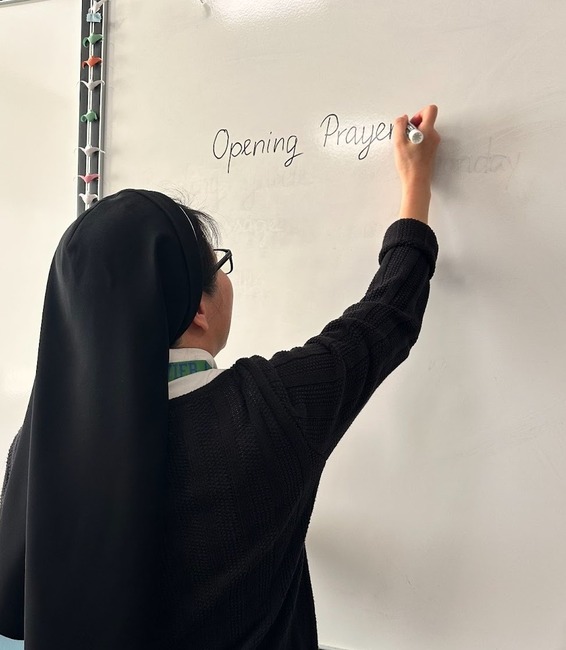Going on five years of Kairos tradition at Xavier, the retreat has been an exciting and formative experience for incoming and current seniors.
Opinions regarding the retreat are strong. Many are extremely curious about the mystery that surrounds Kairos, while some are cautious because of how “religious” it all seems to be. Most attendees, however, are excited to go and come out of the retreat with a newfound sense of positivity.
Typically, there are five dates retreatants can choose to attend: the summer going into their senior year, which allows them to become leaders, September, November, January or March.
Kairos is an ancient Greek word from the New Testament that means the right time or a specific moment of decision.
According to Danielle Burr, theology teacher and Kairos retreat coordinator, the Kairos retreat originated in New York in the 1970s, and eventually landed at Salpointe Catholic, a Carmelite high school in Tucson, which was the first high school in Arizona to have Kairos.
The tradition of Kairos occurs out of “schools teaching other schools.” Under the direction of Sister Yolanda Mendoza from Notre Dame Prep, and with the help of Kim Cavnar and Sister Kathleen Sinclair, the program grew at Xavier. Burr came on board during Kairos 5.
Currently, the girls travel to Mount Claret each day of the retreat and go home at night, but it wasn’t always this way. For the first three Xavier Kairoses, they were held overnight in Prescott at the United Christian Youth Camp. Due to the impact of COVID, the retreat was moved to Mount Claret, and the girls no longer stayed the night.
There is a big “Kairos culture” at Xavier, which includes a hype surrounding the retreat that is passed down to each incoming senior class.
Girls are told by their friends who went, “Kairos is the best thing ever,” or that, “there are some crazy secrets.”
These rumors circulate, setting high expectations, but some feel let down after they go on the retreat themselves.
Burr explains that people may add hype to the retreat because they’ve never experienced something like Kairos at Xavier, and don’t know what to say when asked about it.
She recommends that people attending the retreat should go into it with “no expectations.” They should also have the courage to say that maybe the retreat is not for them if they are going on it for the wrong reasons, such as just trying to find out what the “secrets” are.
Zaara Arora ‘24, Kairos 16 retreatant and Kairos 18 leader, agrees with Burr. She says “people should go on the retreat if they want a good experience for themselves, not just to know what is going on behind the scenes.” She adds, “what is confidential is a small part of what you actually go through. The surprise comes more from the personal growth that you experience.”
The truth is, Kairos is not so much of a “secret,” just confidential, and it’s so the magic of it can be preserved. “The experiences can only be fully understood through actually going on the retreat,” Burr said.
Sara Schimpp, science teacher, has been on the retreat four times, twice as a student at Seton Catholic Prep, and twice as a teacher at Xavier. For her, Kairos was not only formative in her personal growth, but also in growing relationships with friends and her students.
She recalls how she made her best friend in her small group senior year on their Kairos at Seton. They ended up going to the same college, and have stayed best friends since.
The most memorable experience for her has been hanging out late with the other teachers, just talking around the table and having deep conversations about life. “They were not normal conversations we would have on campus, which makes it super unique and special,” Schimpp said.
As a teacher, she gets to interact with the students in small groups. “Hearing their talks and getting to have conversations with them in small groups,” she said, “made me realize that even though I’m a teacher and a little bit older, we actually all have the same experiences that we are working on. It was really interesting to see that we are all going through the same things as students and teachers.”
Kaiti-Lynn Beazley, theology teacher and Kairos retreat moderator, agrees. Although she did not get to attend Kairos while she was a student at Xavier, she really wishes that she had the opportunity. “In high school, we’re often so judgmental of each other. I didn’t take into consideration that other people were struggling, too.”
During the retreat, students miss three days of school, are not permitted to do homework or use their phones or computers, and may not speak about the content with friends or family.
This policy isn’t to punish girls or make them suffer. It’s really in place to help provide a truly special opportunity to completely forget about the stress and workload from school and life.
“The whole point is to step away from the chaotic world we are living in for just a moment,” Arora said.
She adds that making up homework was not hard at all. “Most teachers are pretty nice about it. I was given my work ahead of time and able to get a lot done before. Teachers have a very lenient makeup work policy which is nice.”
First and foremost, Kairos is a faith-based retreat. There aren’t any “cultish” elements as some may believe, just an ability to dive into the sacraments, Mass and growth in one’s self and God. One may find that by attending the retreat he or she may gain more than just an impactful faith experience, such as new friends, a new outlook on life or just a different perspective.
It doesn’t have to be the most life-changing experience ever, which is why I think some are let down because of their expectations. Even if some don’t feel like they gained anything, they certainly will not lose anything by attending.
It will be exciting to see what the future holds for the Kairos retreat. Options for a possible sophomore precursor Kairos are being set in place, possibly to occur soon.








